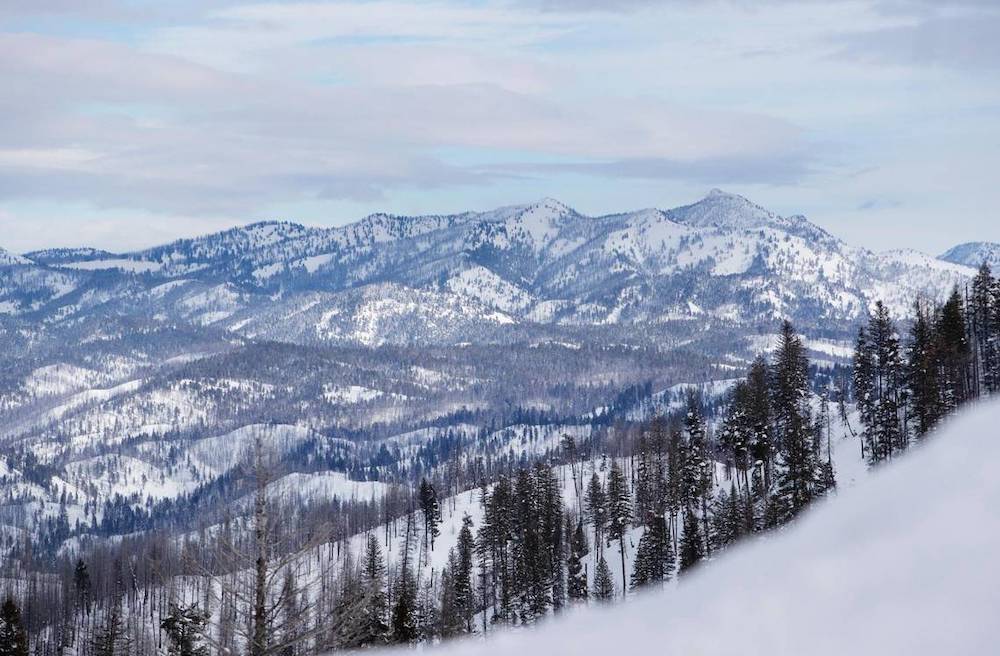US seeks to invalidate Idaho water rights forfeiture laws
Published at
BOISE (AP) — U.S. officials are seeking to invalidate Idaho laws passed over the last five years that create a path through the Idaho Department of Water Resources for ranchers to take control of federal public land instream water rights with a state-approved forfeiture procedure.
The Idaho Legislature in court documents filed last month is seeking to intervene in the case with statewide ramifications for millions of acres of land in Idaho administered by the U.S. Forest Service and U.S. Bureau of Land Management.
The U.S. Department of Justice in a lawsuit filed in June against Idaho and the Idaho Department of Water Resources contends that the state’s forfeiture procedure violates the U.S. Constitution’s supremacy clause. It states that federal law takes precedence over state law. The Justice Department also says the laws violate parts of the Idaho Constitution.
The Idaho attorney general’s office in court documents countered that the state laws are valid and enforceable. The court hasn’t yet ruled on whether the Idaho Legislature can intervene.
Shelley Keen, Water Allocation bureau chief for the state water resources agency, declined to comment on the substance of the lawsuit. Scott Graff, spokesman at the Idaho attorney general’s office, said the office does not comment on ongoing litigation.
At the heart of the case is a 2007 Idaho Supreme Court ruling involving a livestock company’s claim to water rights on federal rangeland to provide water for livestock. The court in that case upheld a lower court’s ruling that the Joyce Livestock Company established a water right and disallowed the U.S. water right claims.
Idaho officials and ranchers have interpreted that ruling to mean that the federal government can’t maintain water rights because it does not put the water to a beneficial use because it doesn’t own cattle that graze the land and drink the water.
But the federal government contends it does put the water to a beneficial use because it issues grazing permits to ranchers that in turn graze livestock that drink the water.
Idaho lawmakers in 2017 approved a state law that, according to an affidavit filed in federal court in July by Republican Senate President Pro-Tem Chuck Winder, “clarifies that a grazing permittee cannont be considered an agent of the federal government.”
That appears to be a change in state law as described by the Idaho Supreme Court in its 2007 Joyce Livestock Company decision.
Besides that decision, the impetus for the recent Idaho water rights forfeiture laws also stems from a nearly three-decade effort to wrap up Idaho water law decisions by the Snake River Basin Adjudication Court and Idaho appellate courts that concluded in 2014. The ownership of some 160,000 water rights were decided.
Among those decisions were thousands of instream water rights involving ranchers on federal public grazing land. Instream water is water that flows in streams, as opposed to water that is diverted from streams.
Many ranchers agreed to deals in which they received instream water rights dated one day earlier than the federal government, giving the ranchers priority use of the water.
But the Joyce Livestock Company in Owyhee County in southwestern Idaho didn’t agree to accept a deal giving it a water right dated ahead of the federal government. Instead, it went through a expensive process to determine the instream water rights that ultimately went to the Idaho Supreme Court and led to the Joyce Livestock decision.
By then, however, many water rights had already been decided by the Snake River Basin Adjudication Court to belong to the federal government.
The recently enacted Idaho water rights forfeiture laws create a state process where ranchers can potentially gain control of the federal water rights already decided by the court.
Ranchers have started using that process, and the Idaho Department of Water Resources this year at the request of ranchers initiated multiple actions against water rights claimed by the federal government based on those water rights not being put to beneficial use.
The Justice Department responded with the lawsuit now playing out in federal court that seeks to have the state laws the process is based on nullified. It’s not clear if any water rights have changed hands under the new state laws.
Cameron Mulrony, executive vice president of the Idaho Cattle Association, didn’t respond to a telephone message seeking comment.
On a broader scale, the federal court case reflects a changing U.S. West where the Forest Service and Bureau of Land Management are shifting toward a multiple-use strategy for public lands that considers recreational and wildlife instead of just livestock grazing. That’s especially true in fast-growing Idaho where many newcomers find the vast federal public lands in the state a chance to explore wild places.
Some of those activities, such as hiking, riding off-road vehicles, hunting and shooting, fishing, camping, and other activities on public land where livestock graze can interfere with ranching operations.
Ranchers, some among families that have grazed livestock on the same federal lands for generations, also face pressure from conservation groups that cite potential violations of environmental laws in challenging grazing permits issued to ranchers by the Forest Service and Bureau of Land Management.
Securing water rights to those grazing allotments is seen by some ranchers as protection against having water or grazing rights taken away in a changing political landscape.
Idaho-based Western Watersheds Project, whose goal is to eliminate the adverse ecological impacts of public lands grazing, is one of the groups that has challenged grazing permits.
“The livestock industry has long tried to use water rights as a means to assert livestock grazing as a dominant use on public lands,” said Erik Molvar, executive director of the group.
He added: “But the reality is that livestock grazing is a privilege and not a right, and should only be allowed in areas where it’s compatible with wildlife, public recreation and all the other multiple uses that are required to be managed on public lands.”



